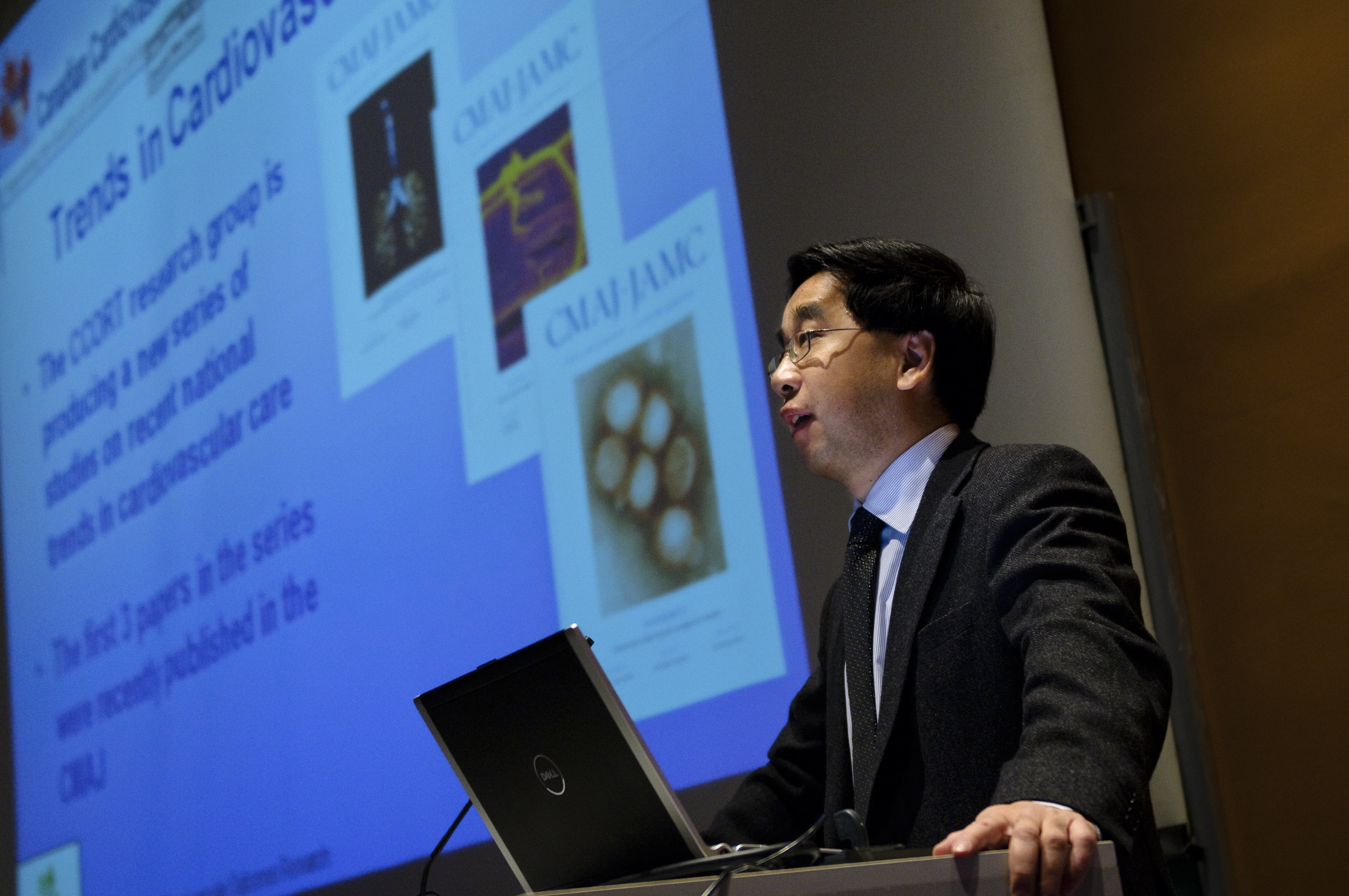State-of-the-Heart Research
By Denise de la Cruz
On November 25, 2009, over 100 students, researchers, clinicians and industry partners flocked to Harrison Hall for the fourth annual Schulich Heart Program Research Day at Sunnybrook Health Sciences Centre. Researchers in the Schulich heart program and guest speakers from England, the U.S. and Israel discussed topics related to this year’s theme: state-of-the-art cardiac disease management.
Welcoming guests were Dr. Barry McLellan, president and chief executive officer of Sunnybrook, and Dr. Brian Gilbert, chief of the Schulich heart program. Both emphasized the importance of the transformative research happening at Sunnybrook, and how it is shaping the future of health care.
Dr. Jack Tu, a scientist in clinical epidemiology at Sunnybrook Research Institute (SRI), delivered the opening keynote lecture: an overview of national trends in cardiovascular deaths, hospitalizations and risk factors. Tu focused on acute myocardial infarction (AMI), heart failure and stroke, from a series of findings of the Canadian Cardiovascular Outcomes Research Team, of which he is a steering committee member, published in the Canadian Medical Association Journal this summer.
Tu, who holds the Canada Research Chair in Health Services Research, reported a significant decrease in mortality, hospital admissions and in-hospital case-fatality rates between 1994 and 2004; he credited better prevention and treatment of heart disease as the reasons. Tu also noted trends in risk factors for cardiovascular disease in Canada including differences based on age, sex and socioeconomic status. He concluded his presentation by stating that further prevention, treatment and national surveillance of cardiovascular disease are required since it is still the leading cause of death in Canada.
The rest of the day was divided into three parts, each focused on specific areas of cardiac research. The first was the investigation of AMI and heart failure, featuring a keynote lecture by Dr. Marie Schroeder from the University of Oxford, who spoke on the role of noninvasive assessment of metabolism in failing hearts. The second part of the day centred on the pharmaceutical management of heart conditions with a lecture by Dr. A. Michael Lincoff of the Cleveland Clinic about adjunct pharmacotherapy in heart attacks. The last part of the day was on the analysis of electrophysiology and minimally invasive interventions for cardiac disease. Dr. Guy Amit of Ben-Gurion University spoke on T-wave alternas in arrhythmia assessment.
Dr. Graham Wright, director of the Schulich Heart Research Program at SRI, said he was impressed by the research showcased, and moved by the discussions in the question-and-answer sessions and during the breaks: “They demonstrate how the talks inspire new ideas for research and patient care.”
Wright was also struck by the size and diversity of the audience. “I was encouraged to see the expanding interest of Sunnybrook’s clinical care community in the research activities of the program. I think it reflects the growing integration of clinical and research in the true spirit of an academic health sciences centre,” he said.
The future looks bright for heart research at Sunnybrook. According to Wright, “Last year, we heard an invited talk on percutaneous valve replacement; clinicians at Sunnybrook have now started performing this procedure. I think the realization of the Centre for Research in Image-Guided Therapeutics with space on M6 and M7, combined with the next phase of development of a state-of-the-art cardiovascular acute care unit and intervention suites, all slated for completion within the next two years, will dramatically accelerate our capacity to translate emerging ideas into better patient outcomes.”



